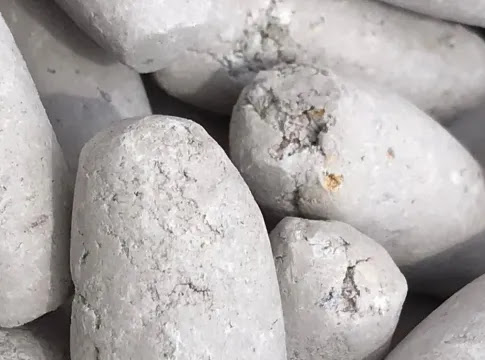Bentonite clay, sometimes referred to as "ayilor" or "shile" in Ghana, has long been utilized as a skin care product.
The clay's principal source is located in Fort Benton, Wyoming, hence its name. Since then, it has been well-known in the beauty industry and on numerous social media platforms. Traditionally, only pregnant women and a few men eat it in tiny, baked pieces shaped like eggs.
Bentonite clay, or simply Bentonite, is a popular treatment for folks who want clear, bright skin. Its appeal is not limited to Africa; it has garnered global notoriety, with skincare behemoths such as Innisfree and L'Oreal Paris including it into their products.
What, though, makes Bentonite clay unique?
According to science, bentonite clay is well known for its extraordinary capacity to draw out excess oil, pollutants, and poisons from the skin. Numerous people have praised this attribute, earning it a sacred place in the cosmetics industry.
Bentonite clay's uses extend far beyond the cosmetics industry; because of its ability to bind to heavy metals and other impurities, it is utilized in environmental cleanup as well as agriculture as a soil conditioner.
Although bentonite clay has become a staple in many skincare regimens, use of this substance should be done with caution. Health experts have cautioned against overindulging in it because it can have a variety of negative consequences on the digestive system.
The beauty and style website "BYRDIE" released an article stating that there might be drawbacks to utilizing the clay. Bentonite clay applied topically is typically regarded as harmless, with little chance of causing skin sensitivities or allergies. Bentonite clay has also been found to contain trace levels of heavy metals, which, if ingested, could have serious consequences due to heavy metal poisoning.
As Bentonite clay continues to serve as an important ingredient for skin care products, it’s essential to strike a balance between reaping its external benefits and being aware of potential health risks when ingested.
While topical use of Bentonite clay is generally considered safe, internal consumption should be approached with caution. As it stands, the health benefits of consuming Bentonite clay have not been extensively studied or proven through rigorous scientific research.
By: Akomapatrendzgh








.jpg)










.jpg)
0 Comments